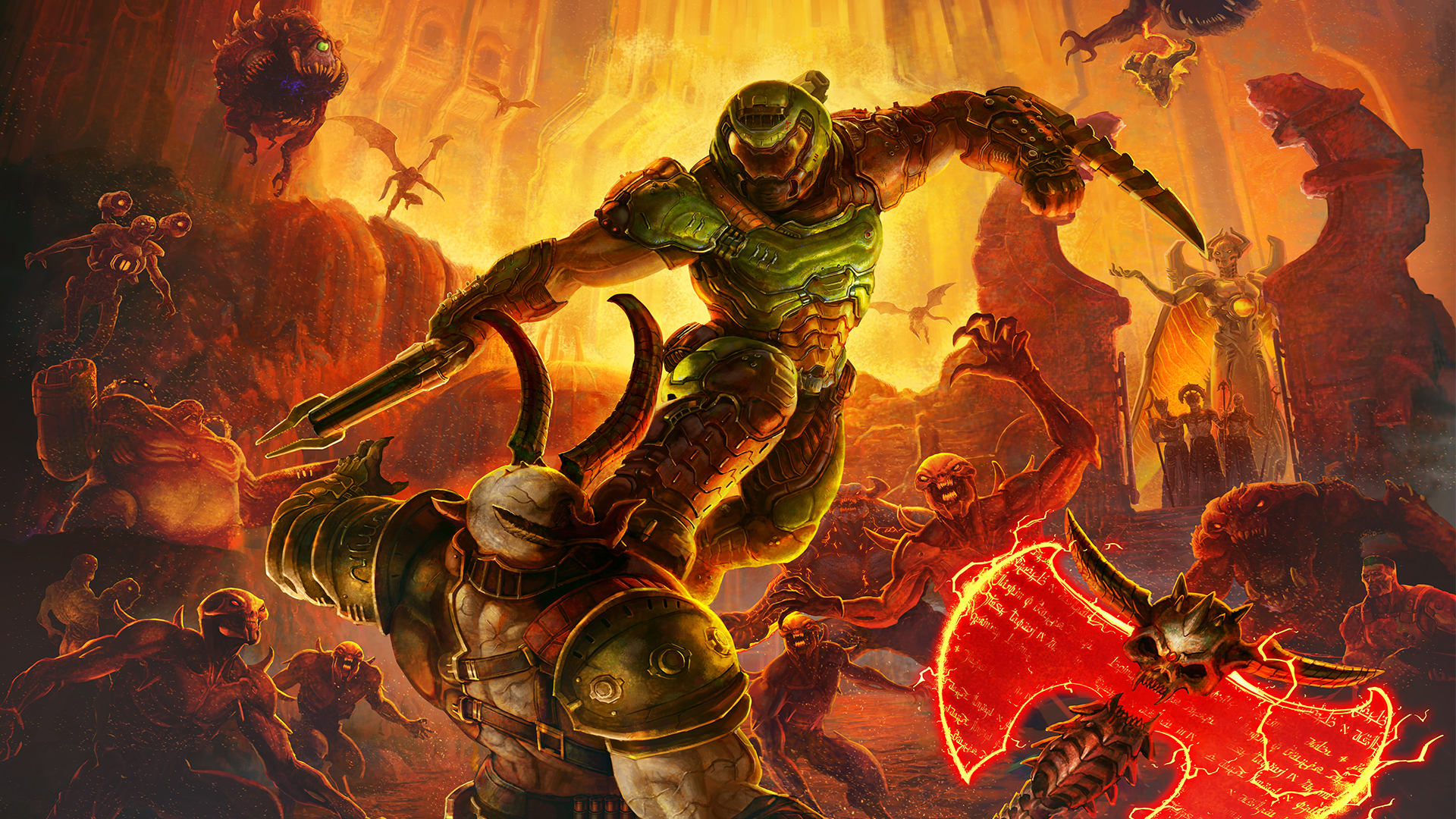
Update - November 16: In a new statement, Bethesda called Mick Gordon's allegations "one-sided and unjust" and asked Doom Eternal fans to "refrain from reaching conclusions" based on his account alone.
Original story follows...
Shortly after the Doom Eternal OST released in the wake of the game's launch in March 2020, players could tell that something was wrong. Back then, composer Mick Gordon declined to comment more than to tell PC Gamer that "I take a lot of pride in my work. It's all I do, it's all I have and I pour my heart and soul into it." Now, in a lengthy Medium post, Gordon alleges that the OST has been the subject of a lengthy legal back-and-forth between himself and representatives of iD Software parent company, Zenimax.
Throughout that post, Gordon alleges significant crunch in the development of the game's original soundtrack. He claims that he was asked to provide two level scores a month, but that audio teams were reluctant to approve music as levels were rarely complete. With Doom Eternal's soundtrack sticking closely to the player's actions, it was extremely difficult to commit to audio until late in development. Gordon describes months of overwork, exacerbated by the outright rejection of some scores, requiring four tracks, instead of two, being provided the next month. By the time the game shipped, Gordon says that he'd "delivered more than double the minutes stated in the contract," but wasn't paid anything extra.
Things got worse when, at E3 2019, iD Software announced a Collector's Edition of Doom Eternal set to contain an OST that Gordon claims was not in production at the time. Gordon claims that efforts to expedite that production schedule were rebuffed by executive producer Marty Stratton until the issue was escalated to Bethesda. In those conversations, which took place in March, Bethesda allegedly told Gordon that he'd receive a bonus if he could provide a 12-song OST by April 16.
Gordon says that on April 3, with less than two weeks before that deadline, Stratton contacted him to say that the April 16 date was now a hard deadline, as consumer protection laws could mean that buyers who didn't get the OST by April 20 would be entitled to full refunds. At the same time, Stratton revealed that another developer, lead audio designer Chad Mossholder, was working on an alternative version of the soundtrack. Metadata purportedly accessed by Gordon revealed that work on that project had begun in August 2019, despite later claims that it was a late decision.
Just before the deadline, Gordon's work was scrapped, replaced with a much longer OST that Gordon considers "wasn't up to standard". In an attempt to rectify that situation, Gordon alleges that he and Stratton agreed to a joint statement, after he declined to "take ownership" of the mistakes that he claims were made by Mossholder. A draft of that statement "never arrived."
Sign up to the GamesRadar+ Newsletter
Weekly digests, tales from the communities you love, and more
Instead, Gordon says Stratton took to Reddit, with an open letter discussing "increasing concern[s]" in Gordon's ability to deliver the OST to deadline, among many other claims. Gordon describes this post as "an extensive series of lies that blamed me entirely for the failure of the DOOM Eternal OST", saying that it was "littered with lies and disinformation which directly contradicted the actual events and contractual clauses". Due to Stratton's seniority within the studio, he continues "nobody thought [he] would go out on a limb and post a series of false accusations on Reddit".
Despite distancing himself from the release on social media, Gordon claims that the post has led to notable harassment, and also says that Zenimax offered to settle when Gordon got lawyers involved in the issue. The deal at that time was that "they would pay me the money owed, but on the condition I produce a new, polished version of the DOOM Eternal OST." Gordon's counter-proposal, however, made it clear that he would be unhappy working under the "shadow" of Stratton's post, and asked for it to be taken down. Zenimax allegedly didn't accept those terms, and instead withdrew the settlement offer.
According to Gordon, however, the company's next move, was another settlement - "a six-figure sum in return for taking full public responsibility for the failure of the OST." Under those terms, Stratton's post would stay up, and Gordon would be forbidden from ever speaking about Doom, the OST, the post, or ever saying anything negative about any Zenimax studio or employee. Gordon declined those terms, and now alleges that further attempts to address the issue have been met by stall tactics from Zenimax. In a tweet last summer, Gordon says that he has made "many, many offers" to fix the OST, but none have yet to have been accepted.
Gordon also says he's posting his version of events as an attempt to "move on" from a "toxic client", and that "the truth is more important" than the "hush-money" settlement he was offered by Zenimax.
We've reached out to Bethesda, iD's parent company, for further comment on the post.

I'm GamesRadar's news editor, working with the team to deliver breaking news from across the industry. I started my journalistic career while getting my degree in English Literature at the University of Warwick, where I also worked as Games Editor on the student newspaper, The Boar. Since then, I've run the news sections at PCGamesN and Kotaku UK, and also regularly contributed to PC Gamer. As you might be able to tell, PC is my platform of choice, so you can regularly find me playing League of Legends or Steam's latest indie hit.


